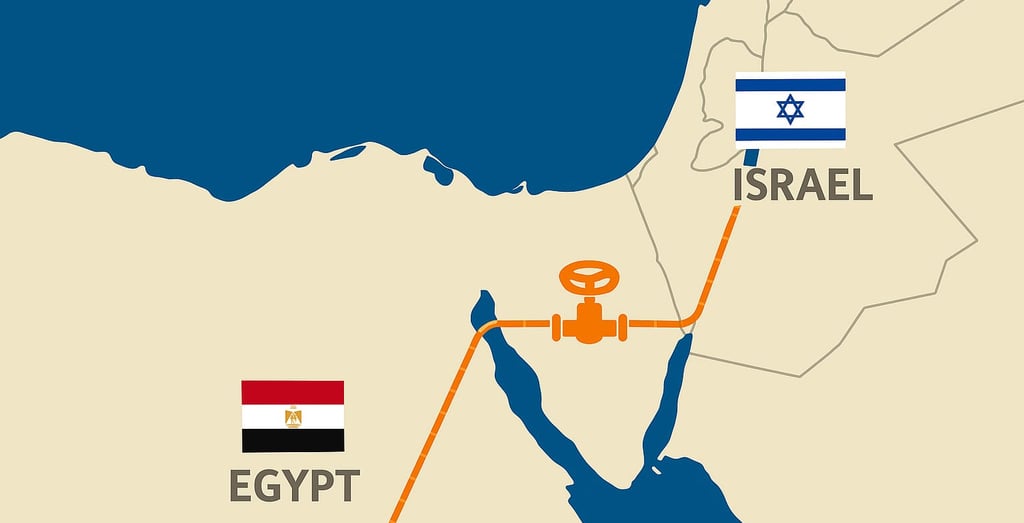Israel and Egypt Sign $35 Billion Natural Gas Deal 2025 | Boosting Eastern Mediterranean Energy Cooperation
Israel and Egypt have finalized a $35 billion natural gas agreement, strengthening regional energy security and fostering economic cooperation through 2040.
Raja Awais Ali
8/9/20252 min read


Israel and Egypt Sign Historic $35 Billion Natural Gas Deal: Opening New Avenues for Regional Energy Cooperation
In 2025, a historic milestone was achieved in the world of Middle Eastern energy when Israel and Egypt signed a $35 billion natural gas supply agreement. Under this deal, Israel’s Leviathan gas field will supply Egypt with approximately 130 billion cubic meters of natural gas through 2040. This is one of the largest export agreements ever made by Leviathan, finalized by the Israeli company NewMed Energy.
The purpose of this agreement is to strengthen close ties between the two countries in the energy sector and enhance regional energy security. Gas deliveries will begin in 2026 with an initial volume of 20 billion cubic meters, increasing to 12–13 billion cubic meters annually by 2029. To facilitate this, new infrastructure will be developed, including a third supply line and an onshore pipeline extending to the Egyptian border at Nitzana.
This deal holds great significance for Egypt, as it provides a stable and cost-effective source to meet the country’s growing energy demands. It will reduce Egypt’s reliance on expensive liquefied natural gas (LNG) imports and help stabilize its energy sector. Moreover, Egypt is establishing itself as an energy hub due to its strategic geographic location, serving not only domestic consumption but also exports to European and other markets.
For Israel, this agreement offers an opportunity to bring its energy production to market more effectively. The Leviathan gas field, one of the largest in the Mediterranean, positions Israel as a key energy supplier in the region. This deal will increase Israel’s energy exports and boost its economic benefits.
Financially, the deal is significant, as it is priced approximately 14.8% higher than previous agreements, reflecting the rising global demand and prices for natural gas. This shows the increasing value of natural gas worldwide and the better management of energy resources by Middle Eastern countries.
However, the agreement also raises environmental concerns. The growing use of fossil fuels contributes to pollution and global warming, making the search for alternative and cleaner energy sources imperative. Therefore, while developing the energy sector in the region, it is essential to keep sustainable development principles in mind.
Overall, the $35 billion natural gas deal between Israel and Egypt is set to transform the regional energy landscape. It will not only strengthen the energy security of both nations but also promote economic and political cooperation in the Eastern Mediterranean. In the future, such partnerships will play a crucial role in bringing stability and prosperity to the region.